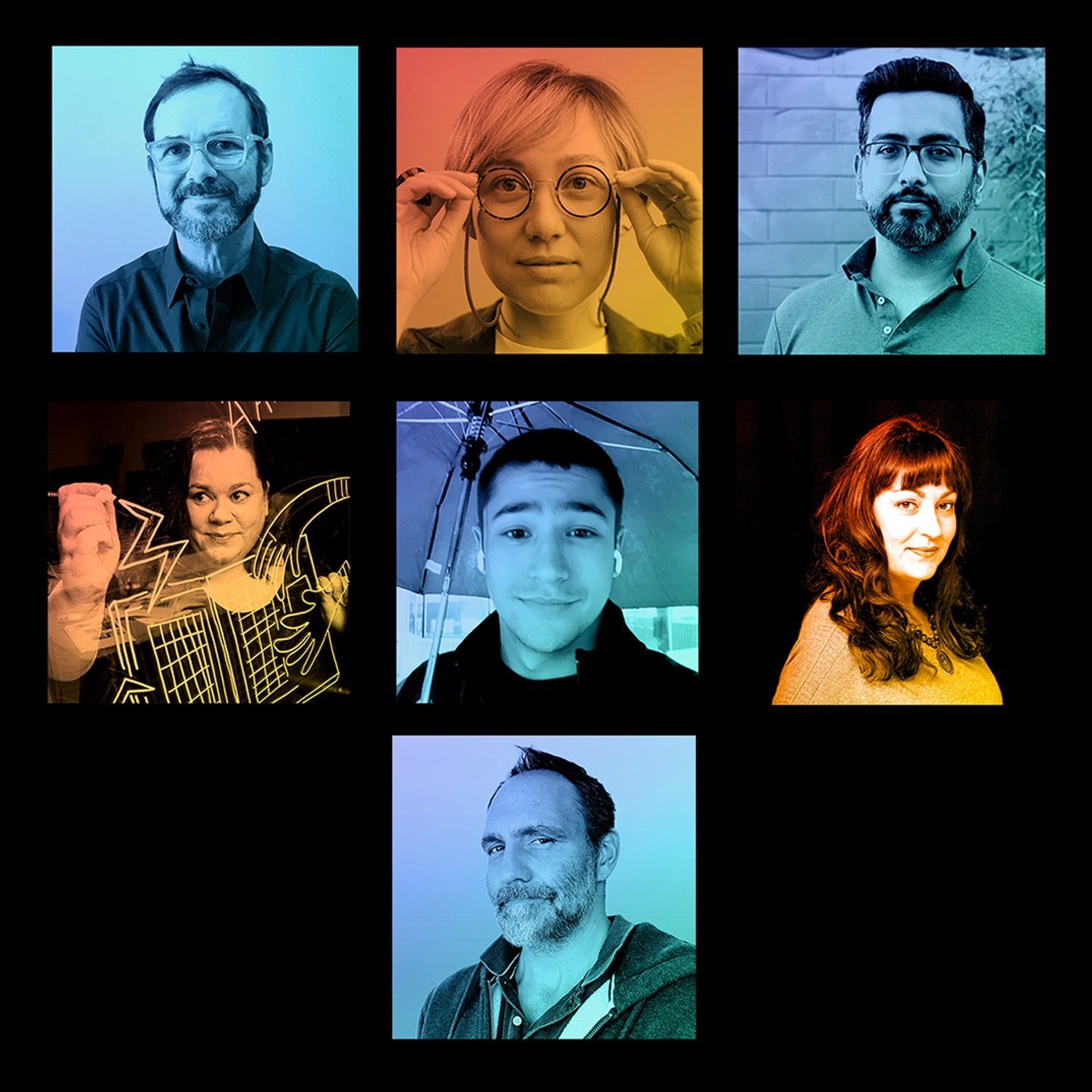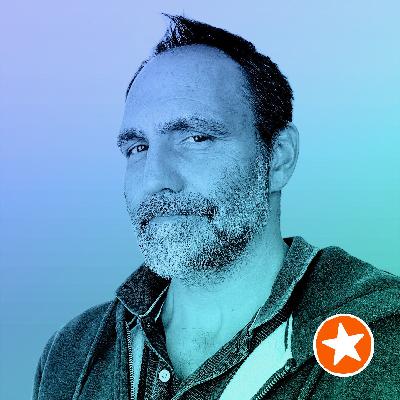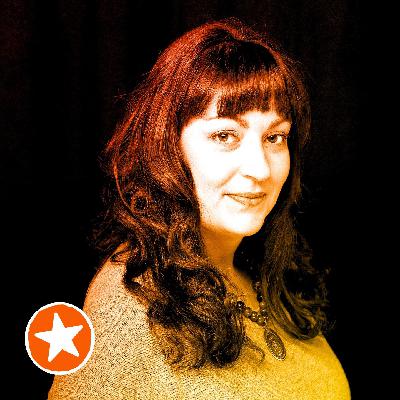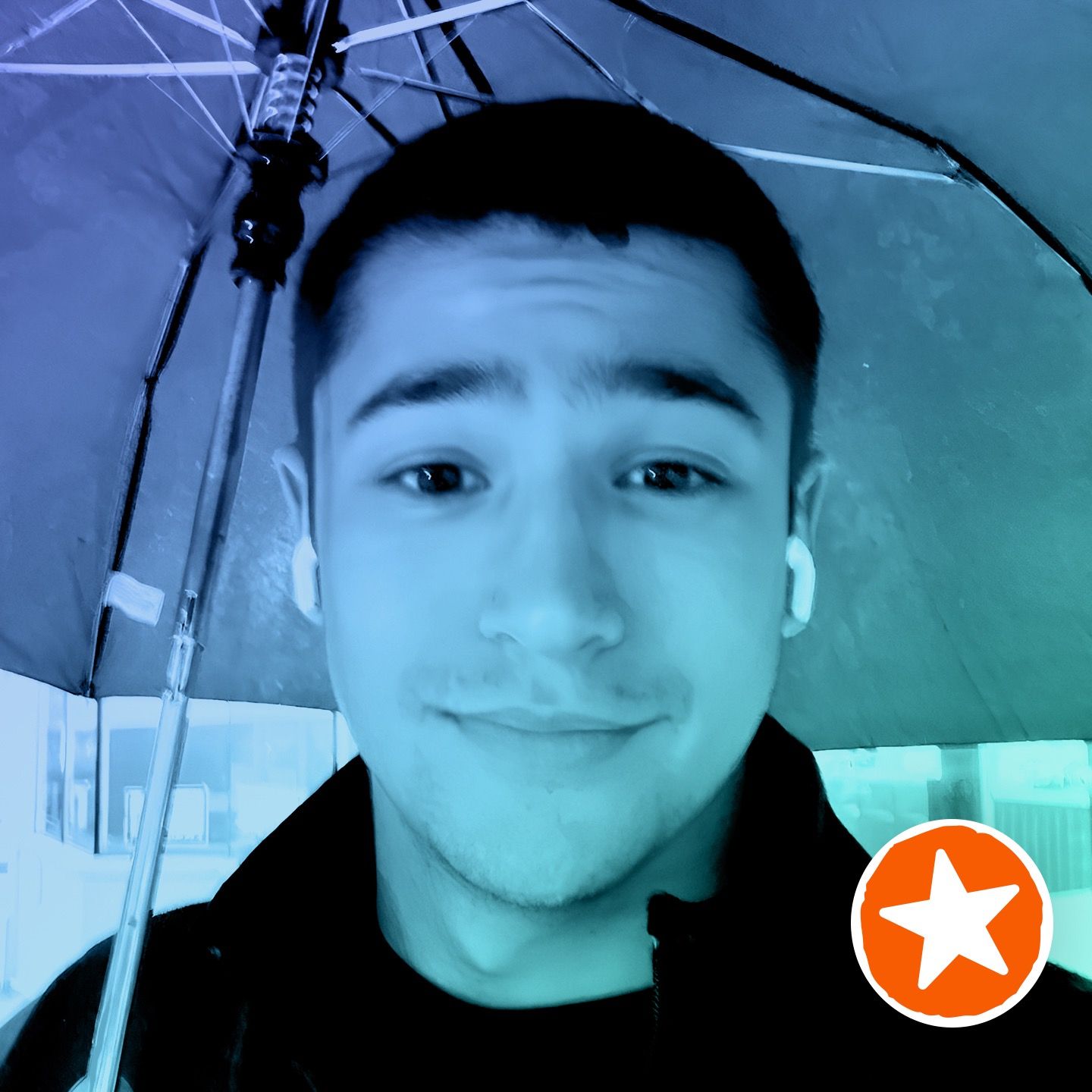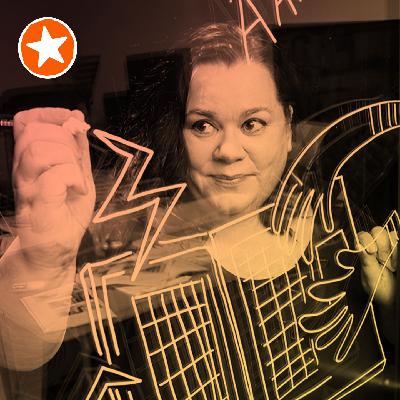Dan Roam, The Journey of a Visual Storyteller - SE17/EP01
Description
In this episode, Dan shares how his childhood love for drawing led him to discover surprising parallels between visual thinking, biology, and organic chemistry.
He reflects on his journey from the analog days of graphic design to the digital era, drawing comparisons to what is currently happening in the AI space. Dan also reveals the origin stories and ideas behind his bestselling books and how they came to life.
Sponsored by The Reflective Travel Workshop Video
Have you ever wanted to create travel sketchnotes from an experience you’ve had, just using the photos and memories you’ve got?
In the Reflective Travel Workshop Video Replay, I’ll guide you through my process for creating travel sketchnotes and then help you reflect on your own photos and memories so that you can make travel sketchnotes of your own trips, too!
This 2-hour recorded video includes a set of downloadable, printable sketching templates and a process to kickstart your own travel sketchnoting practice.
All this for just $20.
https://rohdesign.com/travel
Running Order
- Intro
- Welcome
- Who is Dan Roam
- Origin Story
- Dan's current work
- Sponsor: Concepts
- Where to find Dan Roam
- Outro
Links
Amazon affiliate links support the Sketchnote Army Podcast.
- Dan's website
- Dan on LinkedIn
- Dan on Intagram
- Back of the Napkin 2.0
- The Back Of The Napkin
- Blah Blah Blah: What To Do When Words Don't Work
- Show & Tell: How Everybody Can Make Extraordinary Presentations
- Draw to Win: A Crash Course on How to Lead, Sell, and Innovate With Your Visual Mind
- Pop-Up Pitch: The Two-Hour Creative Sprint to the Most Persuasive Presentation of Your Life
Credits
- Producer: Alec Pulianas
- Shownotes and transcripts: Esther Odoro
- Theme music: Jon Schiedermayer
Subscribe to the Sketchnote Army Podcast
You can subscribe to the podcast through iTunes, Google Podcasts, Spotify, Amazon Music, YouTube or your favorite podcast listening source.
Support the Podcast
To support the creation, production, and hosting of the Sketchnote Army Podcast, buy one of Mike Rohde’s bestselling books. Use code ROHDE40 at Peachpit.com for 40% off!
Episode Transcript
Mike Rohde: Hey everyone, it's Mike and I'm here with Dan Roam, the Dan Roam calling to us from his studio. You can see he's got whiteboards and he's got paintings. He's drinking tea, it looks like.
Dan Roam: Absolutely.
MR: So welcome to the show. Thanks for being here, Dan.
DR: Mike, it is always, always a pleasure. You and I've been talking for a long time, and every time we get to, I enjoy it. So this is fabulous. Thanks for having me.
MR: Same here. Same here. So our history is in 2016-ish, I recorded a podcast with you, and I lost it. Something happened with the audio, and that's bugging me for like forever. And so, having Dan Roam on the show is like a huge get for me. So I feel really excited to have you here. Even though you know, I've been on your sessions and stuff and we've done stuff together. Like, it's always bugged me that I lost this, and we had a really good discussion, which I can't prove. So now we're just got to do it again.
DR: Oh, we'll just do it again and we'll take it into completely different way. And the other thing, Mike, just if I might, is just the fact the nature of our careers and our passion is so interwoven, if you will. Like we keep popping up.
MR: Yes.
DR: I just keep seeing you everywhere. It's like, hey, there's Mike, you know.
MR: Same thing with you.
DR: Yeah, exactly. So it's a pleasure.
MR: So, the couple things I wanted to talk about were your books, of course. I'm kinda curious about your painting.
DR: Hmm.
MR: But we always sort of start the show off with origin story. So I think we all know what you do, but you can start with what you do and then go right into like how did you end up here? Like as a little kid, what drew you into this visual thinking stuff? I think we're both also user experience people. So maybe that had some impact. I'm really curious about that trend. Like how did you get here?
DR: Wow. Well, that's a fantastic question, Mike. And what a great place to start. And the simple, simple answer is, I actually drew something out in anticipation of this.
MR: Nice.
DR: As a little kid, you know, there I am like everybody else, I'm looking at the world and it's awfully confusing.
MR: Yeah.
DR: People are telling you to do things and here's how to act and here's what to learn. And a lot of it was very confusing. And I've spent everything, this is the entire summary of what we're gonna talk about. How can I figure out a way to go from that to that so that things are clear. So, like every kid I drew a lot, but like many kids, I never stopped the drawing part. So I've learned to draw badly really, really well. And I'm sure that people who follow you probably have similar types of stories.
MR: Yeah.
DR: Like the visual thinking side, the visual storytelling side. Maybe can I have, you know, mom, dad, school teacher, maybe could I have a few less words and maybe a few more pictures. And so, that's really the origin story. Nothing particularly unique there. But I would add one thing, Mike, if I could, because that kind of powered me up through university, but I had this kind of critical catalytic moment when I was at university, maybe my second year of school. So I was studying out here in California in Santa Cruz, and I thought that I wanted to be a doctor at that time. So I was on the pre-med track.
MR: Interesting.
DR: So I was taking biology and lots of chemistry. And if anybody's ever taken, you know, organic chemistry back in the old days, pre-digital, anything, you know, you'd build everything out with these models of molecules. And so, organic chemistry was entirely visual. And as a model builder, which I've always been to plastic models, airplane models, that kind of thing the idea of trying to understand what the professors were teaching us about these fundamental concepts of how do atoms bond to create these molecules, And you can model it out. Because there are very specific rules of how each of these different types of atoms is gonna bond with the other ones. So that was really cool. And so I'd be in chemistry class and learning that.
And then I'd go over to painting class 'cause I was also taking painting, and our professor would be talking about you know, fundamentals of really good composition. And he'd be talking about the golden mean and the Fibonacci numbers. you know, you don't have to paint that way. But if you look at the works of Leonardo, or if you look at the works of Michelangelo, if you look at really, really outstanding classic beautiful artworks, the Parthenon, they seem to follow these kind of beautiful harmonic mathematical formula.
And I thought, wait a minute, this is crazy. I'm over there in chemistry, and they're teaching me like visually, how things fit together so that they work. And now I'm over in art, and they're teaching me ways to visually put things together so that they work. And it's like these rules are the same. Isn't that amazing? And so, I kind of created this path happily, as I mentioned, I went to a school called Santa Cruz, part of the UC system, down on the beach in California.
MR: That's Santa Cruz.
DR: And at Santa Cruz, even in the 80s, or especially in the 80s, it was a pretty funky school. And they were like, hey, design your own major. So I designed one that was an intersection between fine art and biology slash chemistry. Because I really found that, you know, an interest—and you can imagine my parents, I get a degree in painting and degree in biology, and you're functionally unemployable. Like what are you gonna do with that, other maybe than do scientific illustration? Which was a potential path.
MR: Yeah, that's true.
DR: But I did not really have a talent at that, which is a side note as to why. And so, what I did instead is I became a consultant. I had worked my way through school doing graphic design, like basic, fundamental pre-digital pay stuff, like Exacto knives, wax machines, Galley of type on paper.
MR: I've done that.
DR: Like all that. So that was a skill that I had. So I was able to get a job with a newspaper in San Francisco. And I was working in the advertising department, like doing longhand analog advertising design. And I realized I was really interested when I wo


